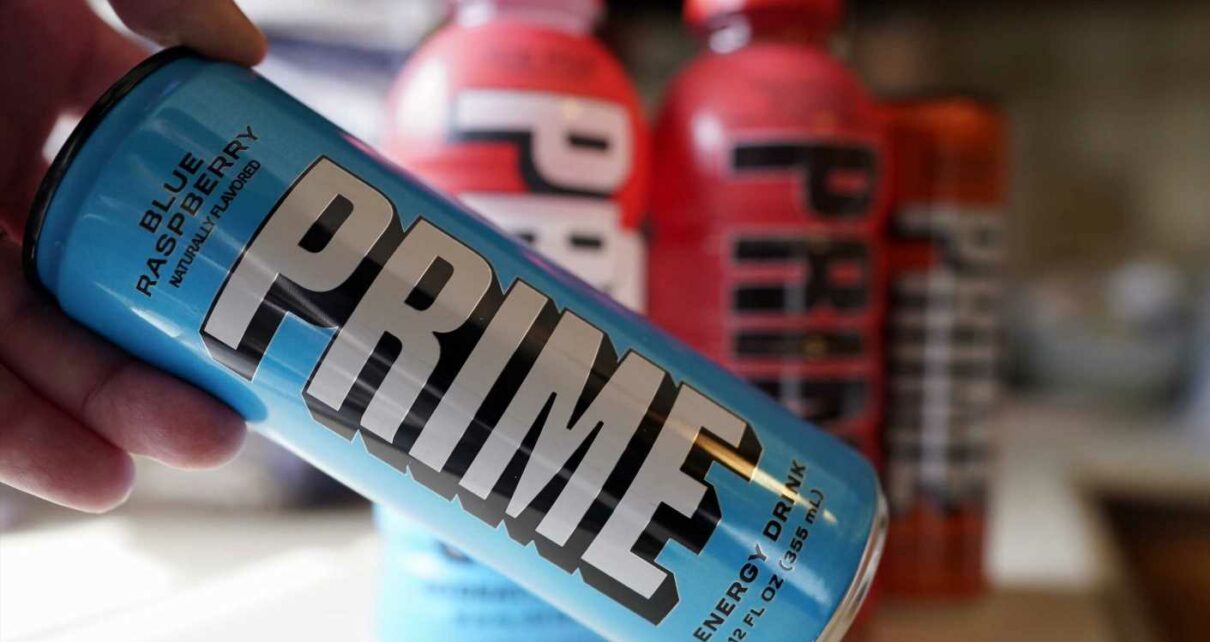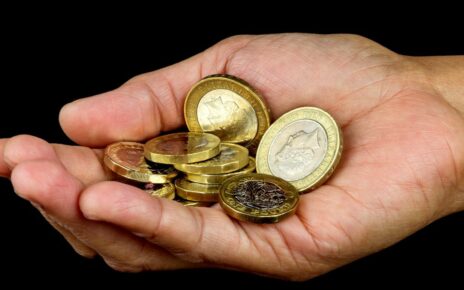PRIME drinks are in the spotlight after concerns were raised over their caffeine content.
Launched by YouTube stars KSI and Logan Paul, Prime first hit the market in January 2022 and quickly became hugely popular, with shoppers going to extreme measures to get their hands on the product.
But there are health worries about what's actually in the energy drink.
How much caffeine is there in a Prime drink?
Prime Energy drinks contain 200mg per 355ml can – equivalent to about two cans of Red Bull or six cans of Coke.
The beverage has come under fire for its potentially dangerous levels of caffeine.
Prime Hydration, meanwhile, contains no caffeine.
Read more on Caffeine
Warning as ‘deadly’ supplement containing ‘lethal’ amounts of caffeine
Five ways to get your cheap caffeine fix after the clocks go forward
In July 2023 Senior Democratic senator in America Chuck Schumer, called on the US Food and Drug Administration (FDA) to investigate the caffeine levels of the energy drinks.
He claimed Prime contained "serious" health risks.
Speaking at a news conference in New York, he said: "This stuff called Prime, at just 12 ounces, has an eye-popping level of caffeine and that's giving parents and doctors the jitters for the kids that are targets.
"Prime is born from the reels of social media and the enigmatic world of influencers.
Most read in Health
Warning to millions amid shortage of life-saving drugs across UK
Shocking photo shows man green and HAIRY tongue after years of smoking
7 signs your child needs urgent medical attention after playing on the beach
Brain-scanning HELMET 'detects signs of dementia in just 3 minutes'
"Kids see it on their phones as they scroll and then they actually have a need for it.
"And the problem here is that the product has so much caffeine in it that it puts Red Bull to shame.
"Parents beware because it's a serious health concern for the kids it so feverishly targets."
Dr Edith R Bracho-Sanchez, a paediatrician from Columbia University's Irving Medical Center, added that high amounts of caffeine can cause headaches, jitters, anxiety, nervousness, and sleep problems in children.
On the official website, Prime Energy is advertised as "not recommended for children under the age of 18, women who are pregnant or nursing, or individuals who are sensitive to caffeine".
What is the recommended daily caffeine intake?
The European Food Standards Agency (EFSA) states that people should not be consuming more than 400mg of caffeine a day.
This equates to roughly four cups of coffee.
When pregnant, people should only have 200mg of caffeine daily.
The NHS warns that drinking more than 400mg of coffee a day may increase blood pressure and note it can produce anxiety, sleeplessness, agitation, palpitations, diarrhoea and restlessness.
How much caffeine is there in coffee?
The level of caffeine in your morning coffee does however depend on a few different factors, including the type of coffee beans you use, how the beans were roasted, and the serving size – aka how big a mug you opt for.
Lighter roasts tend to contain more caffeine than darker roasts.
Brewed coffee, the most common coffee drunk across the US and Europe, contains 95mg of caffeine per serving, on average.
A single espresso contains around 63mg of caffeine – though people who choose a double serving will have 126mg in their beverage.
Instant coffee usually contains less caffeine than other types, and one cup can contain 30mg to 90mg.
Coffee has a wide range of health benefits, and a study has claimed that three cups a day may help you live longer.
It can also reduce the risk of diabetes, according to Swedish researchers.
They found high levels of caffeine in the blood were linked to lower rates of obesity and type 2 diabetes.
Research has also linked drinking coffee with reducing the risks of obesity-related conditions like heart disease.
Is Prime an energy drink?
There are two different Prime drinks: Prime Hydration and Prime Energy.
Prime Hydration is not an energy drink as there is no caffeine in the recipe.
Prime Energy, meanwhile, as the name suggests, is indeed an energy drink.
The Hydration drinks are the most widely available in the UK, though the Energy drinks can be bought online and in some stores.
In his letter to the FDA, Schumer claimed there was little noticeable difference in the online marketing of the two drinks.
He said the two products are packaged and advertised "in near identical form", leading many parents to purchase them for their kids after mistaking them for the non-caffeinated version.
A Prime spokesperson said: "It is very important to make the distinction between the two products because they are vastly different.
"We started Prime last year with the launch of Hydration, a healthier sports drink alternative that comes in a bottle.
"Prime Energy, sold in a can, dropped in 2023 and contains a comparable amount of caffeine to other top selling energy drinks, all falling within the legal limit of the countries it’s sold in.
Read More on The Sun
I was a BGT star – but a wrong move has left me a complete unknown
Warning to parents as deadly baby virus on the rise in the UK & Europe
"It complied with all FDA guidelines before hitting the market and states clearly on packaging, as well as in marketing materials, that it is an energy drink and is not made for anyone under the age of 18.
"As a brand, our top priority is consumer safety, so we welcome discussions with the FDA or any other organisation regarding suggested industry changes they feel are necessary in order to protect consumers."
Source: Read Full Article












